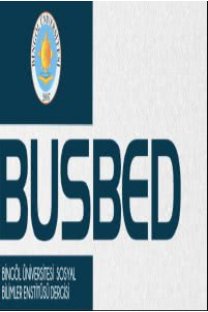The Ethics in Arabic Jahili Poetry
The Ethics in Arabic Jahili Poetry
The old Arabic Poetry depicted the life and the various conditions of the people of the age. It conveyed their sensibilities, morals and customs. In this research, I will observe and classify the virtues and the high moral values in that poetry. This is a research that does not go beyond the divans of Al-Muallaqat poets for reasons of not going beyond the limited range of the study. It turns out that about fourteen moral behaviors or ethics were regarded as ideals in that society: Generosity, courage, prompt response to the distressed, protecting the one who seeks out safety, keeping good relations with relatives, taking care of the neighbors, faithfulness, chastity, pride, discretion, truthfulness, mercy and justice, patience and prudence. These are ethics which may have other subdivisions if a researcher seeks to investigate the subject more. I have adopted the method of defining every moral behavior and every ethic and have provided an adequate account of its meaning and of its intended design, using the dictionaries of the language and other sufficient idiomatic dictionaries related to philosophy, literature and Arabic criticism. Two or three lines of relevant poetry have been included in each paragraph to complete the making of a general perception of every ethic and of its application in the Arabs's lives through poetry. This research is considered as a step towards the making of a comparative ethical study through the Pre-Islamic poetry and the early Islamic poetry. A number of differences and changes in the ideas and perceptions as caused by the advent of Islamic religion into the Arabic society are concluded at the end of the study.
___
- AYYILDIZ, Esat (2017), “El-Ahtal'ın Emevilere Methiyeleri”. Ankara Üniversitesi Dil ve Tarih-Coğrafya Fakültesi Dergisi, C.57, Sy. 2, ss. 936-960.
- ِ آي يز، ْ - يْلد ي أسعد، "مدائح حسان بن TMبت"،تحرير مريج أرآسلان، إزمير، جامعة إيجة، كتاب ِ المتون التامة للمؤتمر الدولي للعلوم الإنسانية والتربية ،8-10 نوفمبر 2019 ،286- .298
- AYYILDIZ, Esat (2019), “Hassân B. Sâbit’in Methiyeleri”, Ed. Meriç Eraslan, ICHES Uluslararası İnsani Bilimler ve Eğitim Bilimleri Kongresi Tam Metin Kitabı, İzmir, Ege Üniversitesi, 8-10 Kasım 2019, ss.286-298.
- ISSN: 1309-6672
- Yayın Aralığı: Yılda 2 Sayı
- Başlangıç: 2011
- Yayıncı: Yusuf Aydoğdu
